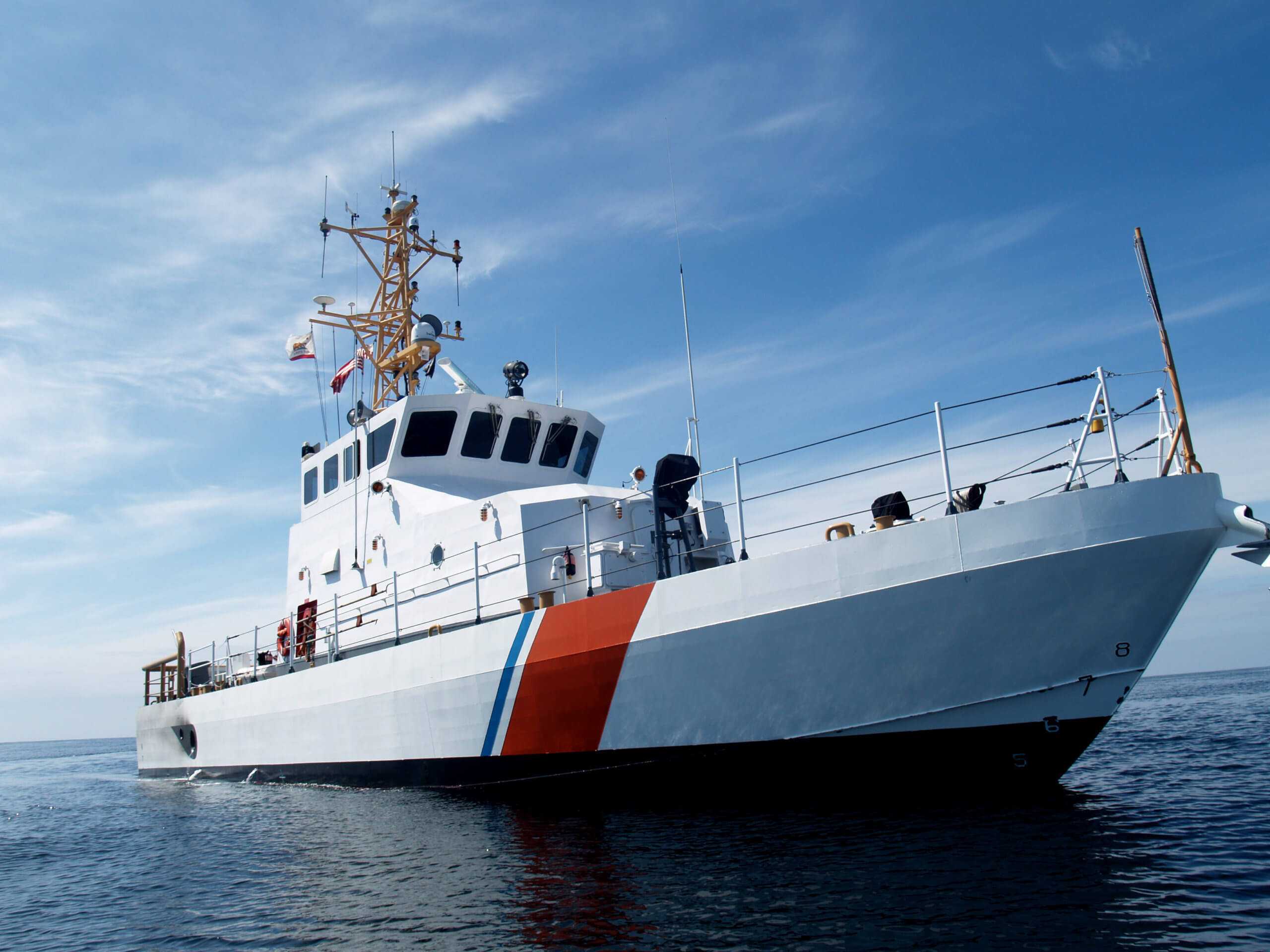Cold Water Survival

Hypothermia is a subject that my son and I, members “back in the day” of a USCGAux Cold Water Team, were trained in. Recently, among the professional life-saving community, whispers started that we have had it all wrong, that data from U.S. Navy studies from the post WW-II era on “Time of Useful Consciousness” on molded dummies with internal brass skeletons didn’t calibrate to live testing conducted by various scientific and medical studies done in the last couple of years.
Further, medical testing of the effects of cold water on the human physiology would lead one to believe that the standard “fireman’s hoist*” of a stricken mariner, taught everywhere, could in fact lead to a worsening of the effects of cold water on the victim, even leading to death.
The Cold Facts
Back in August 2010, while attending the National Convention of the US Coast Guard Auxiliary in Phoenix, AZ, I attended a presentation on this topic by a Canadian organization called Cold Water Boot Camp (www.coldwaterbootcamp.com) which works in cooperation with many life-saving organizations, including the U.S. Coast Guard.
A good friend and fellow member of U.S. Coast Guard Forces, Mario Vittone, USCG Marine Safety Specialist and former Helicopter Rescue Swimmer Instructor, was featured in the video portion of the presentation as one of the guinea pig subjects. In the past, Mario would ping me with commentary on hypothermia. “Vin, some of this stuff is not lining up with the latest data. Be careful!”
The problem I had was in sorting out that which was still good and that which was good to go — as in “outta here!” There was no official report to rely on. Well, not only was there now an official scientific report to rely on, but I could talk directly to one of the subjects — Mario. In fact, Mario has published a detailed article on the subject — mariovittone.com/2010/10/the-truth-about-cold-water — which I want to acknowledge here as an underlying source document to this column.
Traditions Die Hard At Sea
It isn’t easy convincing mariners that a lifetime of tradition and practice is wrong. And not everything we know and practice on this subject is wrong. Here are the facts:
The first phase of cold-water immersion is called the cold shock response. This we’ve had right. Data now shows that roughly 20 percent die in the first two minutes. They take on water in that first uncontrolled gasp, panic, and drown, plain and simple. In some, the cold shock triggers a heart attack. Surviving this stage requires you to stay calm and get your breathing under control. If you don’t, your life is measured in minutes and you won’t need your other hand to count them.
A further consequence of this phenomenon is that you will rapidly lose your physical capacity to swim. Even the strongest swimmer can’t fight Mother Nature — your body’s natural reaction to all this cold water is to protect the inner core. It does this by constricting blood flow to the outer extremities and keeping as much warm blood as possible around the inner core. We had this right too. I’ve often described it as “being drunk without the booze.” Fine motor skills go, followed by gross motor skills, followed by, well, death by drowning. You can’t swim without your arms and legs working.
What we had completely wrong was this. To quote Mario Vittone directly:
It is impossible to get hypothermic in cold water unless you are wearing flotation, because without flotation — you won’t live long enough to become hypothermic.
This leads me to the next thing we had completely wrong — “that a 50-year-old man would last 50 minutes in 50-degree water.” All the timings are wrong — if you had a life-jacket on. The good news is that we last longer, far longer, before losing consciousness and ultimately reaching the point of no return.
Don’t Lose Them During Rescue
One of the things we also got wrong, alluded to at the start, was how to rescue victims. The presentation showed rescuers keeping the victim horizontal — not vertical, ever — while getting them into the boat. This is because of what is called post-rescue collapse. Hypothermia makes everything colder, which makes it slower and closer to the edge of collapse. The rescue itself is stressful to a fragile heart, potentially leading to cardiac arrest. The victim can keel over right in front of you, as you haul them over the gunwales and try to get them out of wet clothes (a struggle in itself) and into dry ones. Quoting Mario Vittone again, “Until everything is warmed back up — out of the water and dry is good enough — mobility comes later.”
* Two rescuers, one with each arm of the victim, would “bob” the stricken mariner up and down, “1-2-3 and HEAVE in” and use some the natural buoyancy of the human body to help the rescuers get the person out of the water, over the gunwales and into the boat.
BTW, if you are interested in being part of USCG Forces, email me at JoinUSCGAux@aol.com or go direct to the D1SR Human Resources department, who are in charge of new members matters, at DSO-HR and we will help you “get in this thing . . .”









